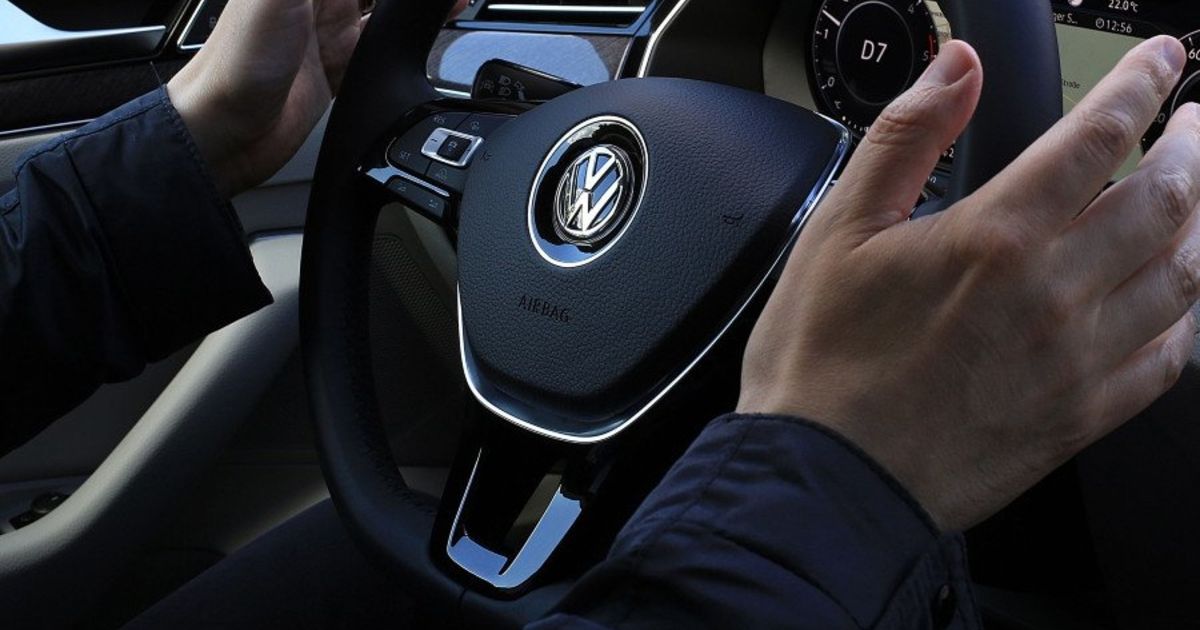
Volkswagen Group’s software unit Cariad believes one of the ways the automaker can monetize future software developments is by offering customers pay-as-you-go autonomous driving technology.
“There is a new business model already out there — a subscription model, or function-on-demand — where you can drive autonomously if you want, for the next 50 miles. We would support that, “ Cariad CEO Dirk Hilgenberg told Bloomberg in an interview.
Although VW does not yet offer either Level 4 or Level 5 self-driving options, Hilgenberg said it was possible to see that the service would allow the automaker the opportunity to offer other services to consumers who are freed from driving the vehicle.
“You have to make sure to have what we call a digital services platform that lets the outside world in — Google, Apple, Amazon — where you can bring your accounts to stream and be entertained, or where you can work with office products, do a videoconference or prepare yourself for the next meeting. This is the product we want to sell. The product is our platforms,” he said.
Volvo Cars said in January its “unsupervised autonomous driving” solution, called Ride Pilot, will be available as an add-on subscription on the automaker’s forthcoming full-electric flagship SUV that will go into production later this year.
Henrik Green, Volvo’s head of advanced technology, said the automaker is still debating what to charge for Ride Pilot, which the company anticipates it will be very popular once it is more widely available.
VW Group CEO Herbert Diess has said the company can only remain a leading automaker and bypass rival Tesla if it steps up its software game. That makes the company’s Cariad unit a linchpin of its long-term success.
So far, things have not gone smoothly. The division — set up in 2020 after a previous digital push went awry — introduced a toolkit for VW’s ID series of electric cars, including the first model, the ID3, which debuted with missing features.
Development of a premium software architecture has been plagued by infighting, delaying models including a full-electric version of Porsche’s Macan compact SUV.
VW is working to build an operating system that is scalable across its brands and capable of frequent over-the-air updates to enable enhancements such as driver-assistance features — areas where Tesla is well ahead.
“We have vehicles starting from the entry level to the latest luxury Bentley, which of course have very different software and hardware needs,” Hilgenberg said. “The layout for our next groupwide architecture is similar to what Tesla had initially brought in, but we wanted to jump a step further ahead. That means high integration, more computer power and of course a different scope,” Hilgenberg added.
VW’s supervisory board is concerned about shortcomings at Cariad and is seeking an overhaul of the business to speed up decision-making, German media have reported.
Hilgenberg acknowledges that Cariad has experienced some problems developing the architecture.
“The vehicle is much more complex than business applications, for example, so we have to make sure that data protection, security and safety is on a completely different level.”
One issue facing Cariad is the provision of regular over-the-air updates for consumers.
“Cariad’s role is to work continuously on the releases, and the brands can then choose from this development and select their update cycles. But it has to be done in due process. We also do not want to overwhelm customers with an update every week,” he said.
In addition to adapting to the fast-paced development of autonomy and other connectivity issues in the industry, Cariad also has to deal with the legacy of being part of the sprawling VW empire.
“Transformation is an active process; it’s a lot of friction. But it’s 20 percent technical challenge and 80 percent change — mental change and cultural change,” Hilgenberg said.